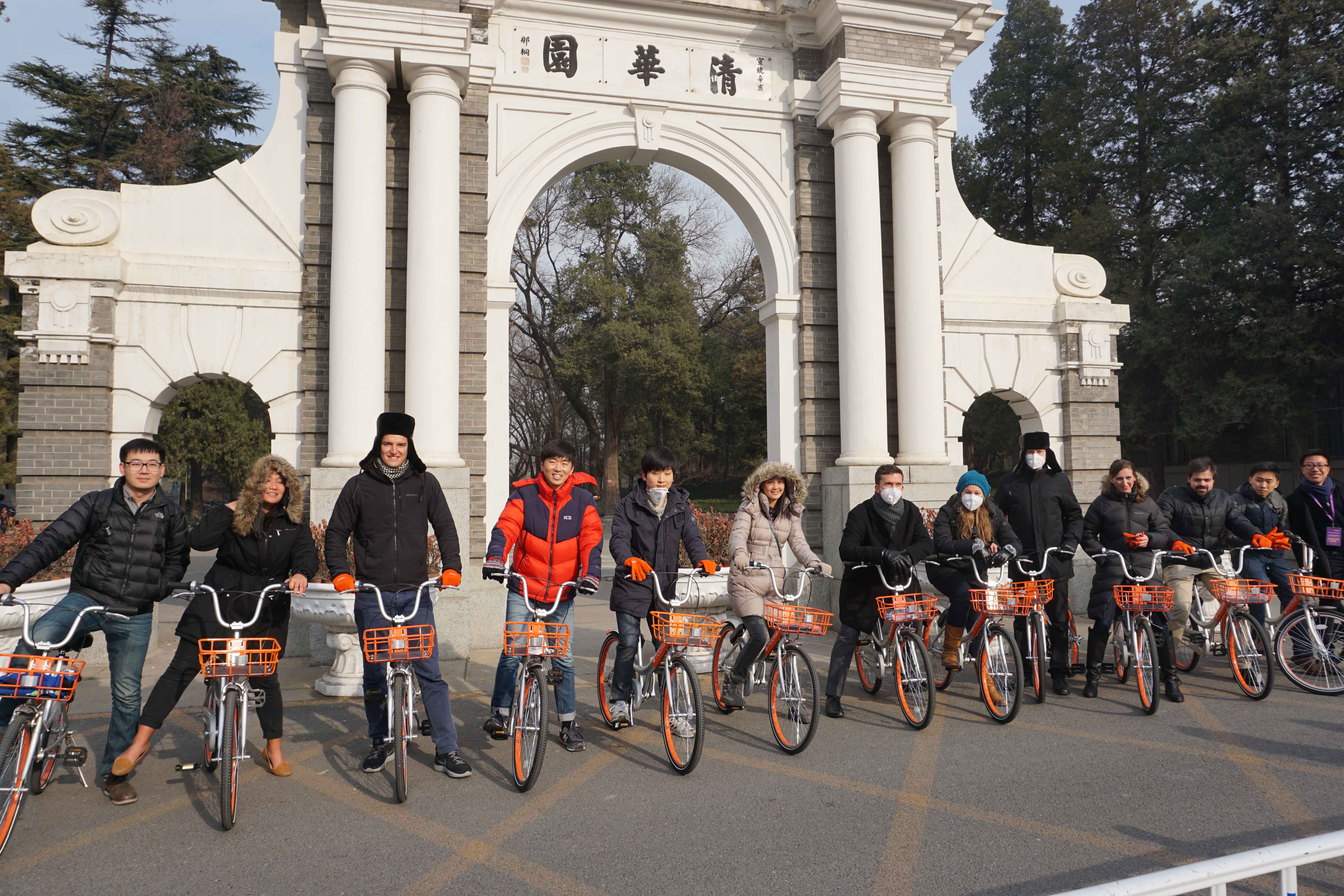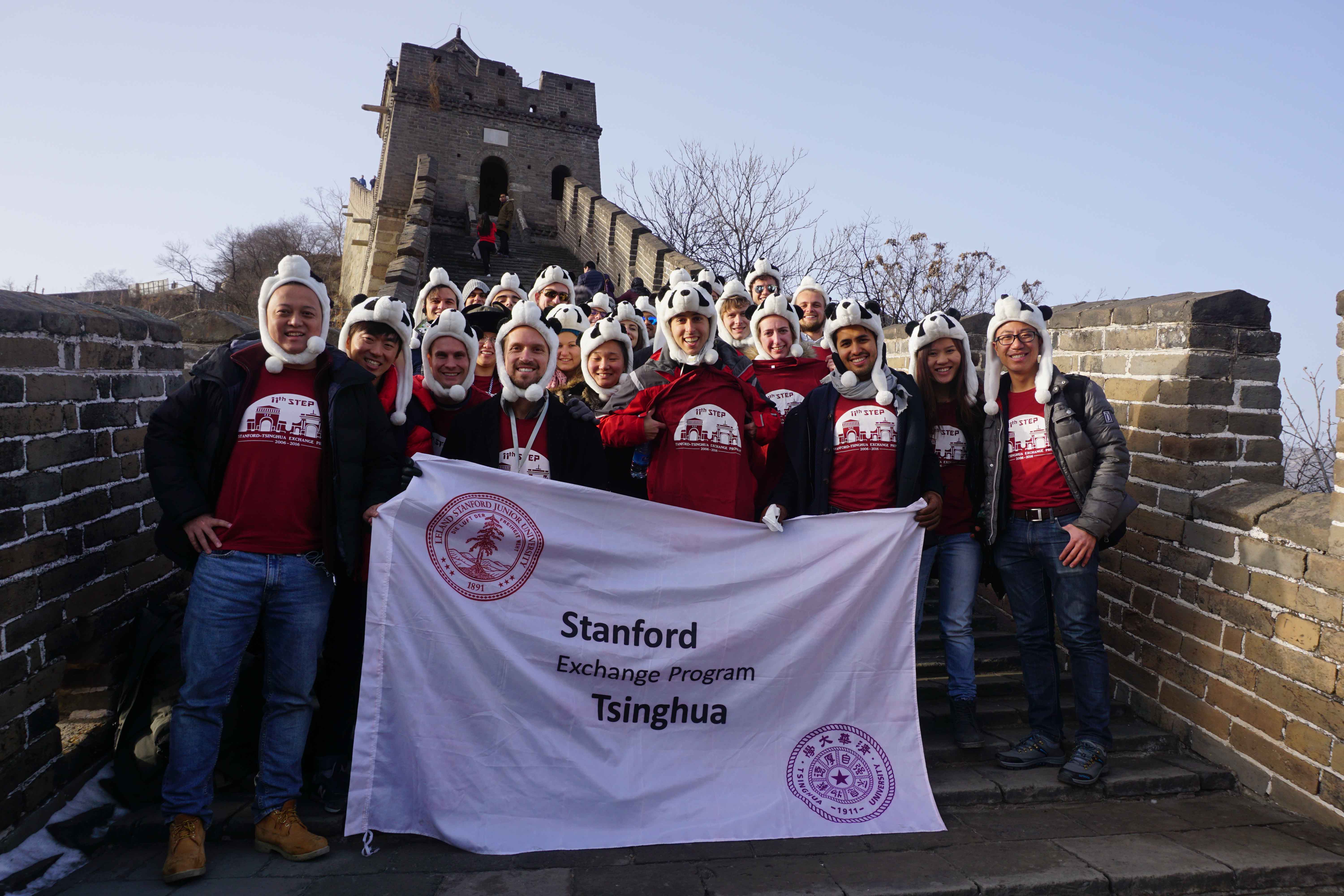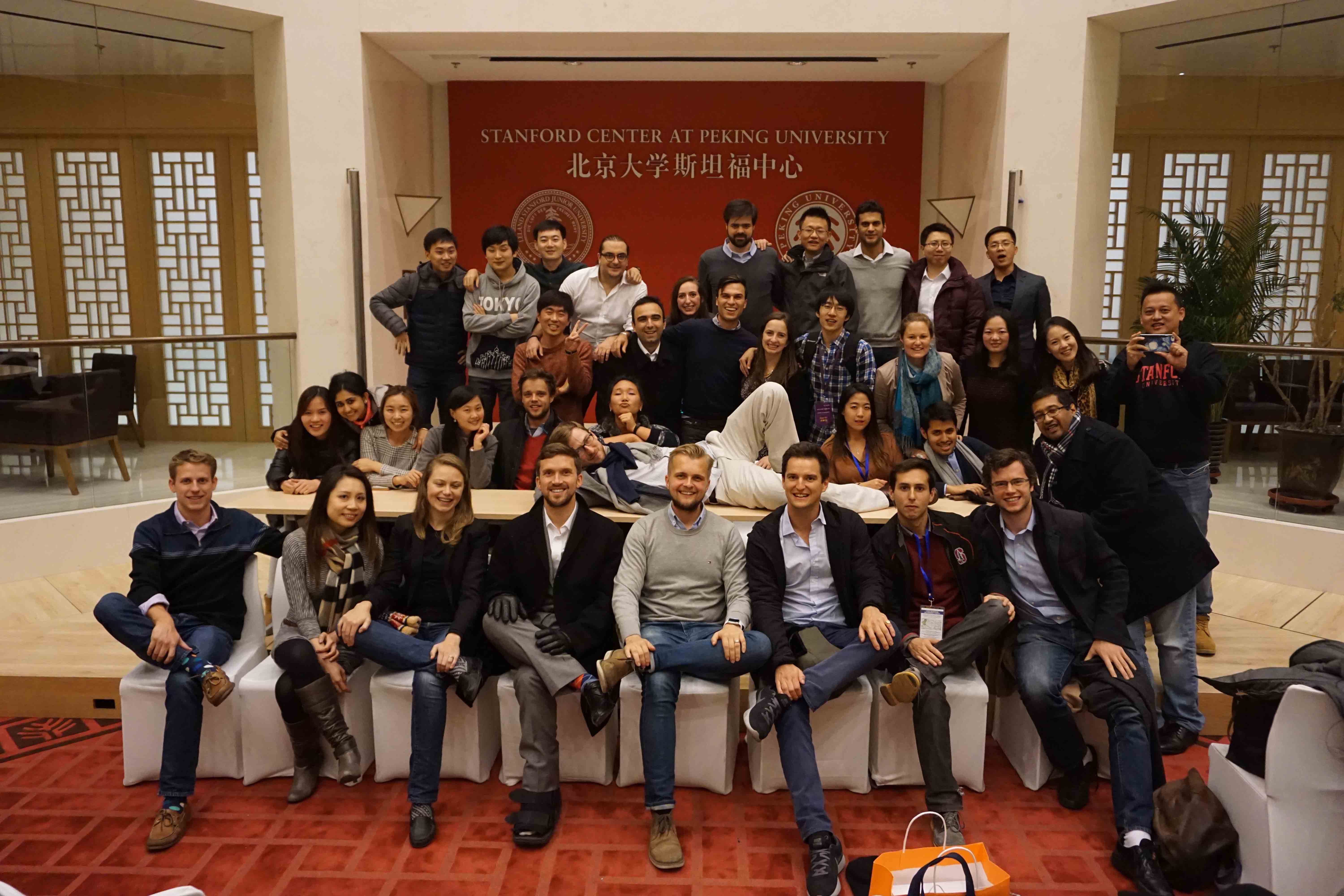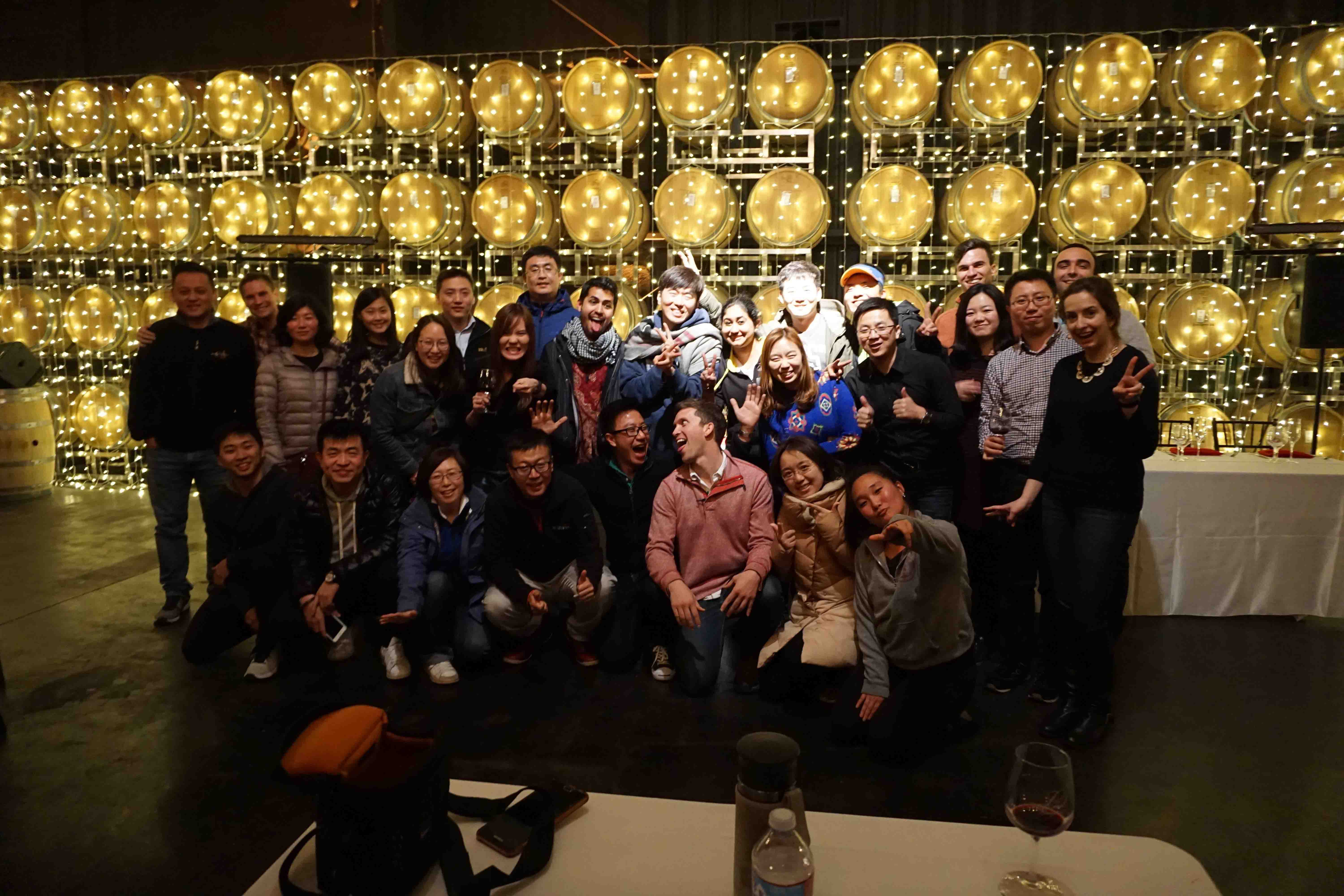Tim
Hesler, GMBA Class of 2017
One of my favorite
elements of the second year in the Global MBA program has been the flexibility
of the curriculum and thus the wide-ranging experiences I and my classmates
have enjoyed. Granted, we paid a bit of a price on the front end by cramming a
pretty full course load into the first year, but on the back end, I can say it
was well worth it.
As reflected in
Issue 20 of Tsinghua Gateway, many of my classmates spent
their third GMBA semester on exchange (and in some cases, dual-degree)
experiences around the globe. While I also gave consideration to these options,
a major factor for me in coming to Tsinghua was specifically to gain more China
exposure. As I contemplated my Fall 2016 prospects, I wanted to maintain the
flexibility to do just that. Still, given the strength of Tsinghua’s
institutional relationships, I felt drawn to the middle ground of a short-term
exchange. My hope was to gain a different perspective without sacrificing a
substantial chunk of my time in China. Fortunately, I found just the right
opportunity.
2016-17 marked the
eleventh year of the Stanford-Tsinghua Exchange Program (“STEP”), one of
Tsinghua’s most established MBA exchange options. STEP has adopted something of
a sandwich model, with Stanford GSB participants visiting Beijing for around eight
days in November, Tsinghua SEM participants heading to Palo Alto for about
eight days in January, and students matched into five-person teams to work on
group projects during and in between modules.
Tying the entire
experience together was our dedicated faculty and admin team, with Professors
Hao Chen and Szu-Chi Huang offering their unique cross-border faculty
perspectives, complemented by Frank Hawke, Director, Greater China at Stanford
GSB, providing a breadth of insights underpinned by nearly 40 years of China
experience, and Program Coordinator Yidan Song tirelessly weaving together all
of the logistical details. During both modules, we had a rich mix of faculty
lectures, corporate visits, and social activities.

Module
I: Tsinghua Visit
Most of the GSB
team filtered into Beijing on the evening of Saturday, November 19. Given that
we had exchanged profile books and conducted a classroom-to-classroom video
conference call beforehand, the in-person “introductions” felt something more
like a reunion of old friends.
Even while warding
off jet lag, the Stanford team was gracious in enthusiastically embracing an
intense schedule from the get-go. We kicked off the first full day by hitting a
couple of the standard tourist sites – Tiananmen Square and the Forbidden City
– before returning close to campus for a Chinese family-style welcome dinner to
cap off the weekend.

The next four
mornings were filled with lectures from four of Tsinghua SEM’s esteemed faculty
– Professors Ping He, Minwen Li, Xudong Gao, and
Baiyin Yang. Professor He offered his insights on the inner workings of the
Chinese economy – planned resource allocation, controlled deregulation, and the
role and effect of leverage throughout China’s economic system – whereas Professor
Li added helpful perspectives regarding Chinese stocks and investments.
Professor Gao’s Wednesday morning lecture was centered on Chinese innovation
and technology, offering thought-provoking perspectives on state-owned
enterprises, their strategic drivers, and the various forms of technology
transfer and intellectual property rights in China. Professor Yang’s final
academic session afforded a glimpse into Chinese conceptions of leadership and
its relationship to what he described as an international confluence of
capitalism and socialism.
Throughout the
week, we had a chance to engage with a variety of local, national, and
multinational companies. Among the site visits were GSR Ventures, People’s Bank
of China, JD Group, Xiaomi, and China Power Conservation and Environment
Protection. One of the quotes that most stood out to me was Hugo Barra’s observation
during our Xiaomi visit that, “The pace of China tech is at least 50% higher
than Silicon Valley.” Although I hadn’t spent a great deal of time in Silicon
Valley to serve as a basis for comparison, his perspective certainly affirmed
my own general impressions from the last two years of Beijing’s incredibly
rapid pace of change and development.
We also welcomed a variety of startup
founders in for lunch-and-learn-style presentations. One of the highlights was
hearing from Terark founder Sean Fu, one of our very own STEP participants from Tsinghua’s
part-time MBA program, about his unique vision to “make data smaller.” A
variety of other tech startups filled out the lunch-and-learn roster, and we also
fielded insights from other alumni and local stakeholders via an afternoon
panel session and a hybrid presentation-and-networking Finance Museum event.
Many of the social engagements – both
structured and unstructured – formed a comfortable counterpart to the academic
and corporate sessions. We were able to squeeze in the remainder of the most
common tourist sites – Lama Temple, Summer Palace, and the Great Wall – and
savor some of the typical cuisine musts – Haidilao hot pot and Beijing duck.
Still, given that Thanksgiving fell during the GSB visit, it was also
refreshing to enjoy two traditional Thanksgiving dinners together, one on
Thanksgiving Day at the Stanford Center on Peking University’s campus and another
on Saturday evening at the Brickyard Retreat before the GSB team’s Sunday
morning departure.

Module
II: Stanford Visit
The schedule for our Stanford GSB visit in
January was similarly packed. After most of us arrived in Palo Alto throughout
the day on Monday the 16th, we were joined for breakfast on Tuesday morning by GSB Assistant
Dean Margaret Long Hayes. One of Dean
Hayes’s side notes struck me, especially when I had a chance to witness it in
person later: the library building at GSB actually has very few books. Like
most libraries, it holds a number of computer stations with access to a wealth
of e-knowledge. What has supplanted the traditional physical books, however, is
an unconventionally wide range of spaces for students to work together – following
through on the collaborative spirit of GSB, which has embedded in its DNA a
belief that students, faculty, and administrators are “co-creators of the
experience.”
Similar to the agenda for the Tsinghua
visit in November, the GSB schedule offered four stimulating academic sessions
with Professors Robert
Burgelman, Charles
Lee, Darrell
Duffie, and Lindred
Greer. In his session, “Becoming Hewlett
Packard: Why Strategic Leadership Matters,” Professor Burgelman asserted that
an important three-prong role of strategic leaders is (1) defining what the
game is (“We want to be a winner in …”), (2) defining what winning means, and
(3) identifying the corresponding qualitative and quantitative indicators.
Professor Lee, meanwhile, explored equity investing and the value (in China,
particularly) of good internal corporate governance. In giving us another
American perspective regarding China’s financial system, Professor Duffie
unpacked the tradeoffs invoked as China pursues a continuation of its
historically unparalleled economic growth in balance with social stability. Our
final academic session by Professor Greer opened with a less conversational
tone, literally, as we bumbled our way (by design) through a silent card game
before a group debrief on some takeaways for conflict resolution, one of which
was delineating constructive and destructive conflict.

The corporate calendar held a mix of
on-site visits and on-campus conversations with such companies as Tesla, AKQA,
Instacart, Nerdwallet, Facebook, Uber, and Google. I was previously unfamiliar
with Nerdwallet, but that visit was especially compelling, in part because of
its glimpse into the company’s culture. During our Q&A session with
Nerdwallet founder and CEO Tim Chen,
I was struck by his authentic tone of humility and candor. As we toured the
offices, one of my favorite spots was the “Fail Wall,” where employees posted
(often humorous) tales of their mistakes while working at Nerdwallet.
Just as in Beijing, the social agenda in
Palo Alto was full of memorable shared experiences. Many of us attended our
first-ever (San Jose Sharks) hockey game on Thursday night. The weekend was
packed with a variety of traditional and not-so-traditional excursions,
including the Golden Gate Bridge, Alcatraz (with its surprisingly entertaining
audio-guided tour), the Haight-Ashbury district (famous for its ties to the
hippie movement), the Monterey Bay Aquarium (complete with ridiculously awesome
sea otters), and a variety of other spots. We also hit several local haunts for
group meals, ranging from Cali staple In N Out to much more formal venues. One
of my favorites, however, was our Wednesday evening dinner arrangement, when
Stanford GSB students welcomed us into their homes for thoughtfully
orchestrated small-group dinners.

One of the strands that ran through both
STEP installments was the team project assignment. I was fortunate to be paired
with a Tsinghua part-time MBA student and three GSB participants. Although our
time was limited during both modules with all of the other items on the agenda,
it was fun to develop a pitch with my team – Team UniBridge, as we dubbed
ourselves – for a startup idea that spanned the education space in China and
the U.S.
Ultimately, however, perhaps the STEP
memories that will remain most firmly etched in my mind are the “non-headline”
moments that in many ways defined my experience – riveting conversations on bus
rides with peers both new and old, the curiosity of students and faculty alike
reflected in their thought-provoking questions, and even the way in which the
GSB team welcomed us into its world of quirky and ever-evolving inside jokes.
As Professor Huang reminded us as we prepared to part ways in Beijing, “zai
jian” (“goodbye” in Chinese) literally translated means to see or meet again,
and indeed, I look forward to the continued intersection of my path with many
of STEP’s people, places, and ideas for years to come.